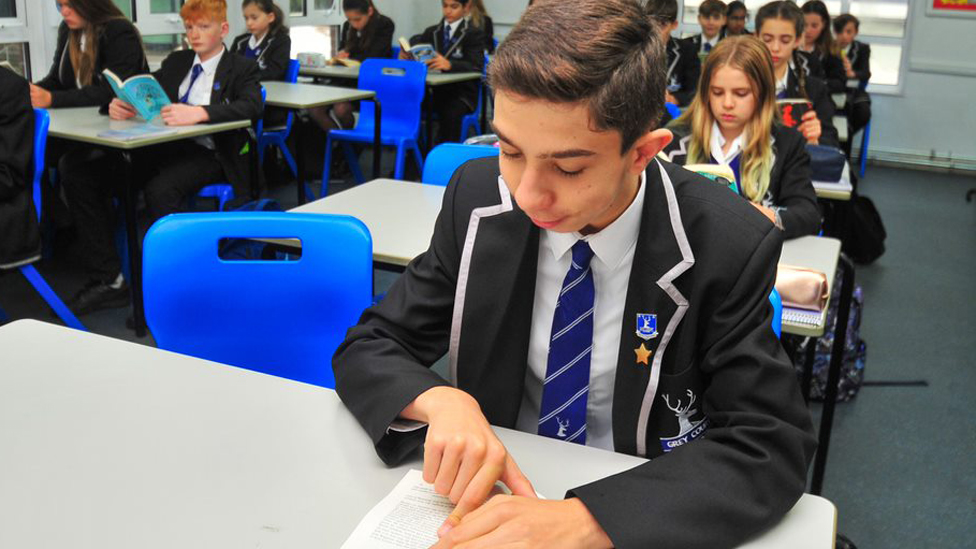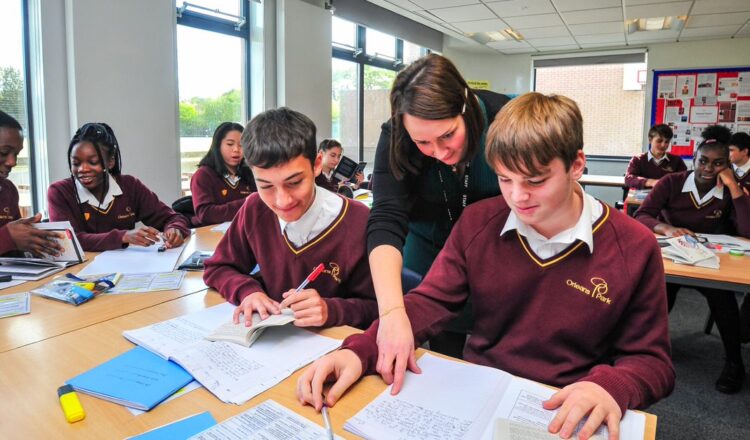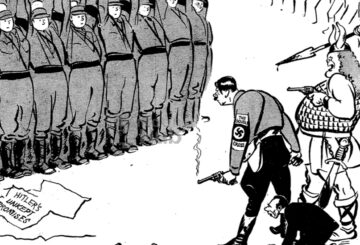In summer 2021, we published our research review into History education.
These reviews summarise some of the thinking of researchers and practitioners about what works in the History classroom.
They are useful for us when we design our training for inspectors.
They may be useful for you as a starting point when looking at a particular issue in History education in your school, such as assessment or chronological knowledge.
Below is a brief summary of some of the findings which we explored in our History research review.
1: Curriculum decisions in history are multi-faceted.
Schools have a lot of freedom to design their curriculum.
In the review we emphasise that schools need to consider lots of different rationales for including particular content – such as the breadth of the curriculum and what knowledge will best support pupils to learn more in the future.
2: Identifying particularly important content is useful.
A rich and broad History curriculum will cover a huge wealth of content.
However, to help teachers build all pupils’ historical knowledge, it is really useful to identify particularly important content. This can help to shape the curriculum and teaching.
This content can be emphasised in curriculum plans and teaching, it can be prioritised in assessment to ensure that pupils have learned the most important content.
It can also be revisited often to give pupils lots of opportunities to secure their knowledge.
Often, this will be knowledge which is important for pupils to have in order to access later learning.
For example, a pupil’s knowledge of the broad features of the medieval period will give them a good background for learning about particular events and phenomena in the period.
It could be useful for a school to identify specific features of a period which they want all pupils to know and build these into curriculum plans, teaching and assessment.
Substantive concepts such as monarchy, trade or culture are often important.
Secure and rich knowledge of these concepts can help pupils to make sense of complex information more easily.
3: But everything else is important too!
Although identifying particular important content is a useful process, our review also warns against focusing too heavily on this core content.
Other information isn’t just nice background – it is crucially important in building a sense of period, introducing ideas and concepts, giving meaningful examples of abstract ideas and broadening the curriculum.
4: Abstract ideas and concepts are best learned through repeated encounters with meaningful examples.
Imagine trying to teach pupils in a general or abstract way about the complex relationship between monarchs, archbishops, bishops and the Pope in medieval England – this would be nearly impossible!
But pupils can readily grasp these ideas through the rich example of the Henry-Becket conflict.
The Henry-Becket conflict gives what we called a meaningful example of an abstract idea. It makes it real and familiar to pupils.
And pupils need repeated encounters with these ideas and concepts throughout the curriculum.
By studying lots of meaningful examples of abstract ideas, such as the role of the Pope or debates about the powers of Church and monarchy, pupils will build increasingly sophisticated knowledge of these.
This same approach is also effective with disciplinary knowledge – knowledge of how historians study the past and construct accounts.
Pupils must learn some very abstract ideas, such as how historians give weight to particular accounts or how their different research interests can shape their methodologies and arguments.
Like with abstract concepts, this is best done by building up complexity over time through meaningful examples of how historians have studied particular periods, events or phenomena.

5: Teaching should represent the work of historians in authentic ways.
Learning disciplinary knowledge through real examples of how historians have studied the past is also important because it helps us to represent these disciplinary traditions accurately.
We should break down disciplinary concepts so that they can be learned over time, but we need to be very careful about oversimplifying what historians do – it is complex and we need to help pupils to see that complexity.
This means we need to be careful with activities and questions which look like they are building pupils’ disciplinary knowledge, but may actually be building misconceptions. For example, asking pupils to judge “which source is most useful?”.
It is important to recognise the limitations of GCSE assessments as a way of structuring teaching about disciplinary knowledge in KS3.
These assessments are not designed for this purpose, and so teaching pupils about sources by preparing them to answer GCSE source questions will not give them all of the complex knowledge they need about how historians use sources.
6: Schools should consider the overall content of the curriculum which pupils learn.
The breadth of the curriculum offer is crucially important in History. In our research review we identify four main areas that schools need to reflect on in their overall curriculum design.
- The range of historical periods and timescales. Do pupils learn about a range of periods in depth? Do they study aspects of the past in overview and in depth?
- The range of places and societies. Do pupils study a range of different places and societies? Do they learn about different regions of the British Isles? Do they study wider world history? Do they learn about the interconnectedness of places, societies and developments in the past?
- The range of historical fields of enquiry. Do pupils learn about political, social, economic and cultural history? In later KS3, do they learn about different methodological approaches which historians might use in different fields? Does the curriculum accurately represent the diversity of historians and academic history?
- The range of people, groups and experiences. Does the way that past events and societies are represented accurately reflect their diversity? Does the curriculum teach pupils about the roles, experiences and contributions of different people and groups? Have schools made sure that pupils do not develop harmful misconceptions about particular groups as a result of what they are taught?

7: Teaching should help pupils to remember what they have been taught.
As well as presenting new material clearly, emphasising important content and ensuring that pupils have the necessary prior knowledge to learn new material, revisiting important content and concepts regularly is one of the best ways to ensure that learning sticks in pupils’ memory.
Low-stakes quizzes are one effective way of doing this but there are many different approaches, and pupils are revisiting this information whenever they encounter it or draw upon their knowledge (not only when they are being quizzed directly on it).
8: Assessment should check pupils have learned and remembered important content.
Because what pupils know supports what they are able to learn in the future, it is crucial that any gaps or misconceptions in important knowledge are addressed quickly.
Therefore, it is important that assessment is used to identify gaps or misconceptions which pupils may have.
Not everything can be assessed so it is useful to prioritise particularly important content.
Because essays and extended writing (which are also very important, particularly for developing pupils’ knowledge of historical argument) do not clearly identify specific gaps and misconceptions, it is likely that other, more focused, forms of assessment will need to be used alongside these.
9: Narrative and story help pupils to learn new content
Narrative and story are powerful ways of presenting new material for pupils of all ages.
They make new content easier to comprehend and learn.
Stories help pupils to see links between events and also place important ideas and concepts within a meaningful context.
Older pupils will also need to learn that narratives are a form of historical interpretation and understand how historical narratives are constructed.
10: Teachers need time and opportunities to develop their subject knowledge and knowledge of how to teach history.
Teachers need secure knowledge of topics they teach and of how to teach History to pupils.
There are many high-quality resources to support History teachers, but teachers need time to be able to make the most of these and time to work together as schools or departments to develop the curriculum and their subject knowledge.
Hopefully our research review can support schools and departments who are thinking about their curriculum by highlighting some of the brilliant thinking of others who have wrestled with similar problems.
Our full research review can be found here.


Tim Jenner is HMI and Ofsted’s Subject Lead for History. Tim has also led history departments in London, Cambridgeshire and West Yorkshire. He regularly writes and presents on history teaching.






